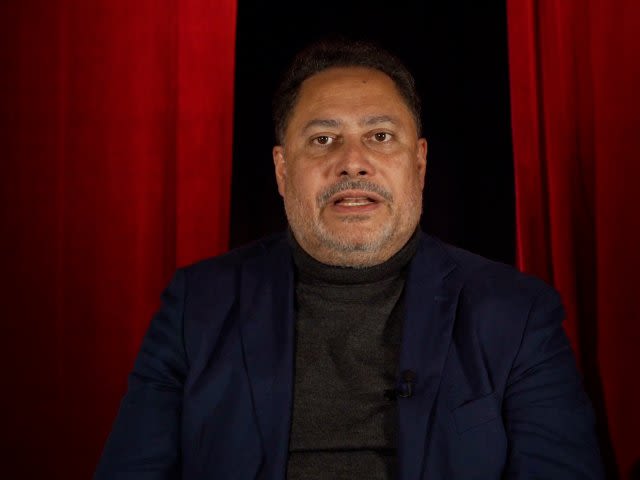Jamaica
Improving Governance Through Data-Driven Strategies in Jamaica

As Jamaica prepares to approve its first-ever Integrated Results-Based Management (IRBM) policy, a milestone in its public sector transformation, the foundational work of the Global Evaluation Initiative’s (GEI) Global Team and the formerly Mexico-based Center for Learning in Evaluation and Results for Latin America and the Caribbean (CLEAR-LAC), a GEI implementing partner, now based in Chile, has been instrumental in turning aspiration into action.
“This modern, innovative policy will capture Jamaica’s holistic approach to IRBM, encompassing all phases, from planning to delivery to performance monitoring, and program and project evaluation,” said Ms. Audrey Sewell, Cabinet Secretary and Head of the Public Service, Jamaica.
The IRBM policy is set to institutionalize monitoring and evaluation (M&E) practices across all ministries and agencies. It aims to enhance governance, improve public sector performance, and ensure that national development goals are met through data-driven decision-making. By embedding results-based management into governance, the country is laying the foundation for a more transparent, accountable, and efficient public sector.
Ms. Audrey Sewell, Cabinet Secretary and Head of the Public Service, Jamaica

Mr. Craig Barham, Performance Management and Evaluation Branch of the Cabinet Office
Addressing Systemic Gaps in M&E
Despite Jamaica's regional leadership in public sector reform, its M&E system previously faced fragmentation. Planning, budgeting, and monitoring efforts operated in silos, creating inefficiencies and hindering cohesive results across ministries.
“We want to encourage a team-based approach to practice, as opposed to silos. Whether you're planning, implementing, monitoring, or evaluating, you all work together,” said Mr. Craig Barham of the Performance Management and Evaluation Branch, Cabinet Office. “Our approach is not to punish failure but to reward people working within a standardized framework, helping to build confidence and continuous improvement.”
Without a formal M&E policy, coordination and consistency suffered. While data collection has been a regular practice, its application in strategic planning and policy making was limited. A shortage of trained professionals in M&E methodologies further reduced the impact of evidence-based decision-making.
GEI and CLEAR-LAC Provide Strategic Support to Catalyze Change
In 2020–2021, the government engaged the Independent Evaluation Group of the World Bank through a CARICOM-facilitated partnership. This set the stage for transformative support from GEI and its implementing partner, CLEAR-LAC. The GEI Global Team supported Jamaica by conducting an in-depth M&E Systems Analysis and building public sector capacity, laying the foundation for the country’s IRBM policy. The collaboration helped to address critical weaknesses in Jamaica’s M&E system.
“The partnership with international agencies like GEI/CLEAR provides credibility,” said Mr. Barham. “It also helps us align with global best practices and accelerates our progress.”
Through this collaboration, GEI performed a comprehensive four-stage Monitoring and Evaluation Systems Analysis (MESA) to deliver insights into the country’s M&E landscape, identifying strengths and areas for development. This analysis laid the groundwork for the IRBM policy now in motion.
Capacity-building, supported by GEI, was central to this transformation—equipping public officials with essential skills and fostering a culture of continuous learning that now drives Jamaica’s results-based practices. An implementation roadmap provided clear, actionable steps to embed M&E practices across government operations and ensure long-term sustainability.
“We’re creating a common language across government so that everyone is aligned and understands what needs to be done,” said Mr. Barham.
Excerpt of a video interview with Mr. Craig Barham
Institutionalizing Results-Based Governance
On the path to achieving the Vision 2030 development goals, Jamaica recognizes the importance of a robust M&E system to track progress and allocate resources effectively. The results of these efforts are becoming visible.
In November 2024, the government launched the IRBM Excellence Awards to recognize outstanding performance in results-based management. More than just accolades, the awards have fostered healthy competition and inspired ministries to refine and adopt stronger IRBM methodologies.
“This initiative isn't just about awards; it's about reinforcing good practices, providing feedback, and ensuring everyone is moving in the right direction together,” said Mr. Barham.
To further institutionalize IRBM, Jamaica is building platforms for knowledge sharing and collaboration. “The launch of the first annual ‘Knowledge Fair’ will provide ministries, departments, and agencies an opportunity to showcase their work on planning, performance monitoring, and evaluation,” said Mr. Barham. “This will facilitate networking, encourage high-quality work, and strengthen best practices across government.”
Another initiative, the “Community of Practice,” supports a repository of Evaluation Case Studies. Currently, 12 members are contributing, with plans to launch an annual “Caribbean M&E Journal”.

A Shift Toward Data-Driven Policy
The value of strong M&E has already been demonstrated in Jamaica’s efforts to tackle gang-related violence. Studies by the Caribbean Policy Research Institute revealed that traditional social interventions had minimal impact on crime reduction, prompting a shift in strategy toward dismantling gangs rather than focusing solely on education and employment. In response, the Jamaica Constabulary Force adjusted its approach to better address the root causes of crime, highlighting the power of M&E in shaping more effective, data-driven policies.
“We needed a system that could provide structure and strategic direction,” said Mr. Barham.

Looking Ahead
While progress has been substantial, the journey continues. Jamaica’s next steps include final approval and seamless implementation of the IRBM policy across all ministries. Strengthening capacity-building efforts remains a priority to ensure M&E sustainability at every level of governance.
Leveraging data analytics will be key to guiding national development objectives. The government also seeks to deepen collaboration with M&E-strengthening capacities organizations, such as the GEI and CLEAR-LAC, to secure continued technical support and knowledge exchange.
As Ms. Sewell noted, “Supported by the medium-term expenditure framework, this system has connected national priorities to ministry goals and aligns our resources more strategically to achieve outcomes that benefit all Jamaicans.”
With strong foundations in place, and global and regional organizations continuing to reinforce capacity, Jamaica is poised to lead. The region is watching as it advances a model of evidence-based governance that delivers real results.
Story by Graham Holliday



